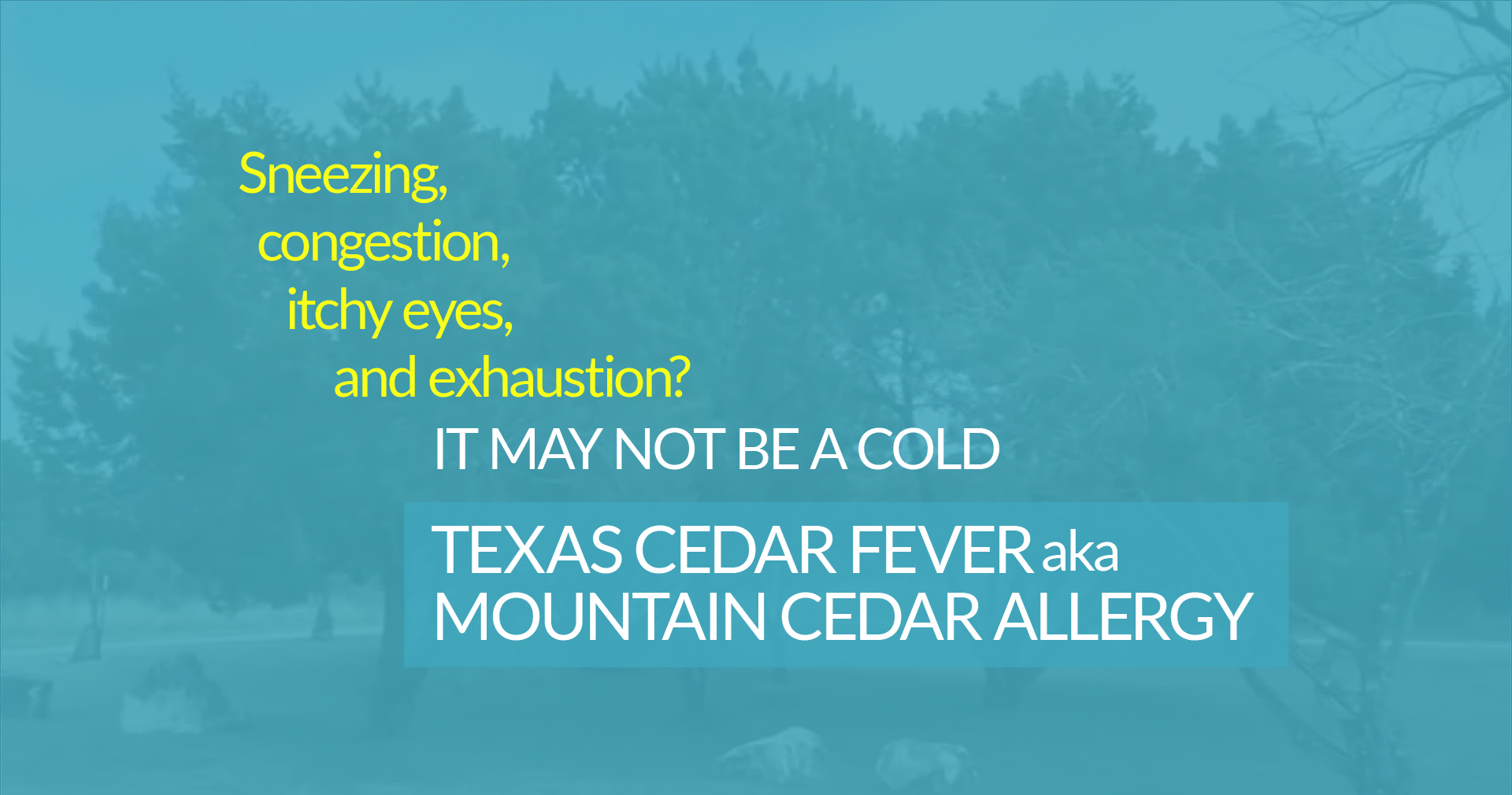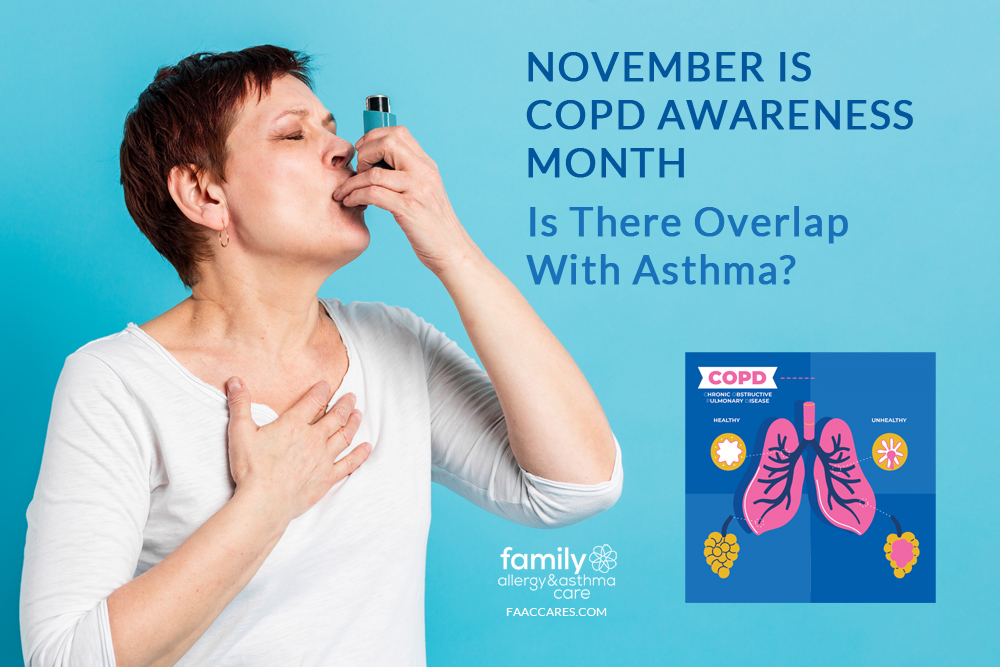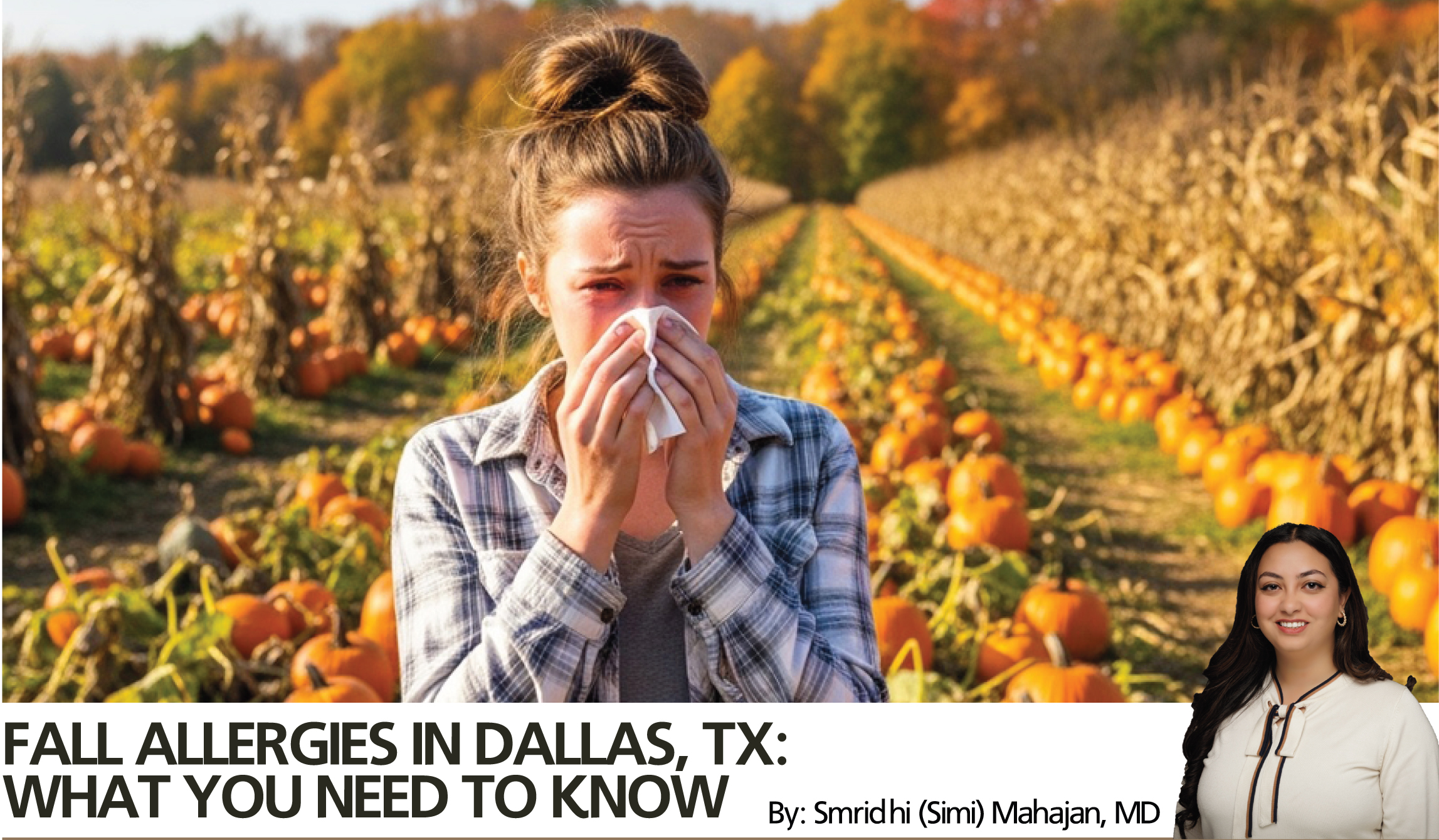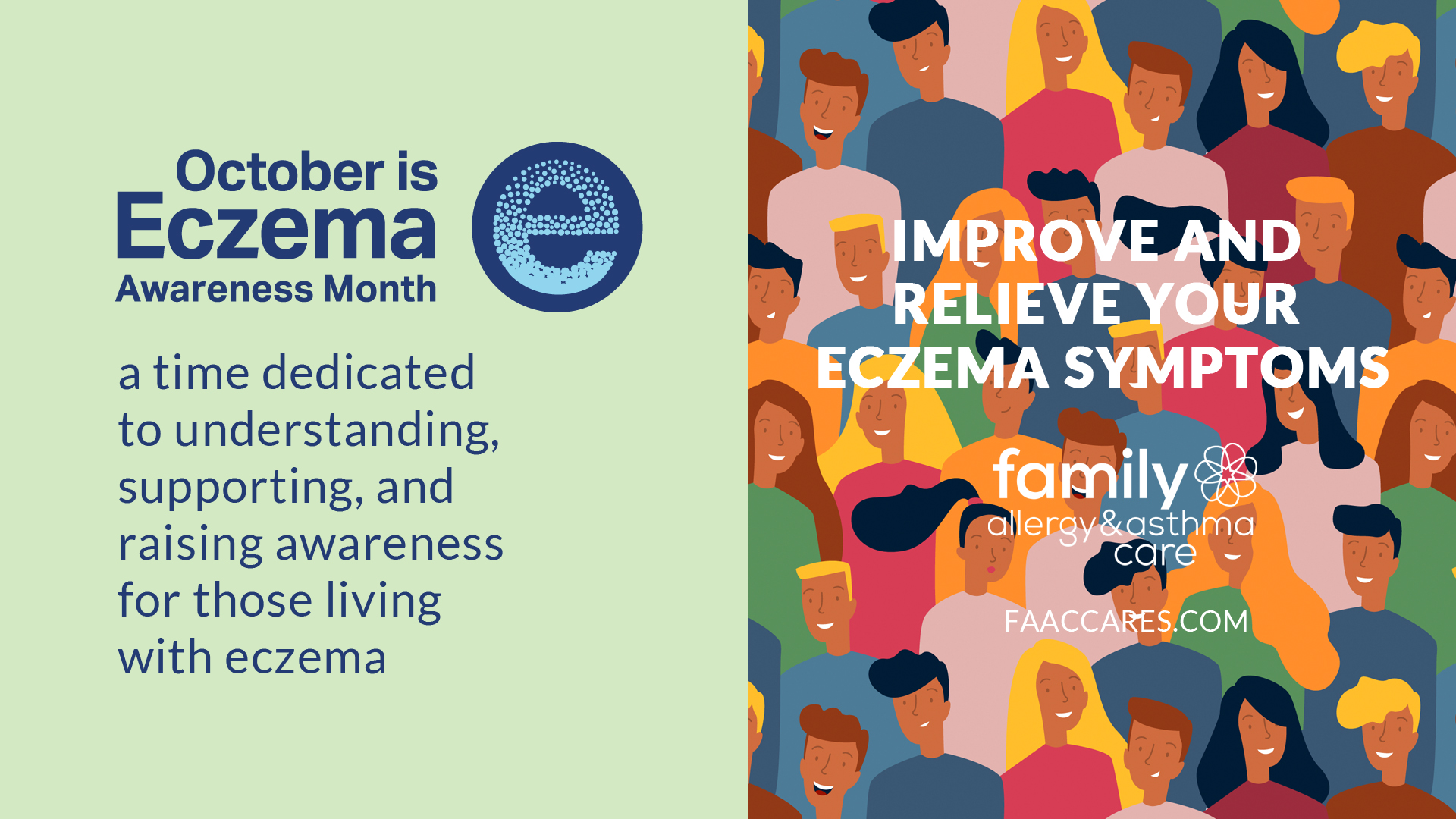
Eczema in Winter: How to Find Relief
Have you struggled long-term with dry, itchy skin? You may have a condition called eczema. Maybe you have already been diagnosed with this condition. In fact, eczema is the most

We’ve brought peace of mind to families for over 25 years. Because we’re board-certified experts in our field, we know it’s important to track pollen counts and keep up with the latest developments in allergy research. Our blog is full of insights from our family, to yours.

Have you struggled long-term with dry, itchy skin? You may have a condition called eczema. Maybe you have already been diagnosed with this condition. In fact, eczema is the most

If you live in North Texas, winter doesn’t just bring cooler temperatures—it often brings Texas cedar fever. Also known as mountain cedar allergy, this seasonal allergy affects thousands of Texans

The New Year is a time of fresh starts, celebrations, and setting goals for better health. For individuals and families living with asthma, it’s also an important moment to reflect

I was so excited to see this article published in Pediatrics, confirming that what allergists and pediatricians have been doing over the past few years is truly making a difference. Our collective efforts — including those here at Family Allergy & Asthma Care (FAAC) — are helping prevent peanut and other food allergies in children across the country.
The study, titled “Guidelines for Early Food Introduction and Patterns of Food Allergy,” examined real-world data from thousands of U.S. children before and after national guidelines began encouraging early introduction of peanut-containing foods (around 4–6 months of age).

Thanksgiving is a time for gathering, gratitude, and good food. If you or a loved one has asthma or allergies, the holiday can also bring a few extra challenges. The

November is COPD Awareness Month, a time dedicated to educating the public about Chronic Obstructive Pulmonary Disease and supporting the millions of people who live with chronic lung conditions. While

In North Texas, allergy season isn’t just in the spring. If you’ve noticed sneezing, congestion, or itchy eyes in the fall months of September, October, or November, you’re not alone.

Celebrating Physician Assistant Week: Honoring Compassion, Skill, and Dedication October 6-12 marks an important occasion in the world of health care—Physician Assistant Week. We say a special “Thank You” to

October is Eczema Awareness month Each October, millions of people come together to recognize Eczema Awareness Month—a time dedicated to understanding, supporting, and raising awareness for those living with eczema.

Urticaria Day (UDAY) is an opportunity to raise awareness of Urticaria across the world, to help improve the lives of patients and to progress understanding amongst professionals, media and the
Receive our board-certified doctor-approved periodic news, tips and articles.